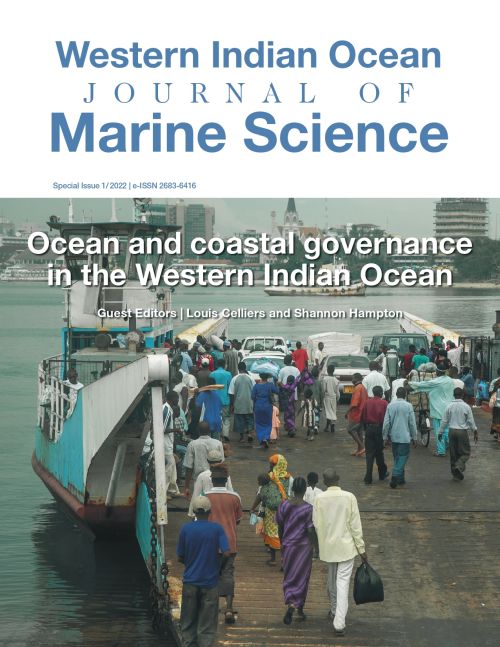Main Article Content
Small pelagic marine fisheries for food sovereignty? The case of the dagaa fishery at three coastal sites in Tanzania
Abstract
To implement effective ocean governance, development of policies and management strategies needs to incorporate input from communities that will be impacted by the decisions. People engaging in small-scale fisheries and aquaculture mobilize themselves in anticipation of various challenges, for example, food sovereignty. Food sovereignty is the right for people to access healthy and culturally appropriate food that is produced through ecologically sound and sustainable methods. Little attention has been paid to documenting and understanding the struggles and efforts of small-scale fishers to ensure their own food sovereignty. In the Western Indian Ocean region, and Tanzania in particular, there has been a limited number of initiatives among coastal fishers that seek to transform food systems. To better understand these initiatives, this study was designed to examine collective actions undertaken in pursuit of food sovereignty among small pelagic fishers at three landing sites on the coast of Tanzania. Collection of primary data involved a survey of 206 individuals, 25 key informant interviews, 3 focus group discussions and participant observation. Secondary data was also collected from official fisheries records and published materials to supplement the primary data. The study revealed limited current capacity of the small pelagic fisheries to satisfy local demand of fifish for food security and sovereignty purposes due to increased fish trade supplying markets beyond the study sites. The prospects of satisfying an increasing fish demand from existing production systems are limited. Small pelagic fisheries need to be linked to the global food system through appropriate mechanisms to allow them to contribute meaningfully to food security and sovereignty.






